Inside Watch Dogs, Ubisoft's new open world
New details including next-gen wind, and how others players can infiltrate your single-player game.
It's early on in Ubisoft's new Watch Dogs demo that the action pauses and we see a static camera angle of a leafy Chicago junction. We're watching the game running in real-time on PlayStation 4, on a dev kit that's scurried away under personal guard as soon as the playthrough is finished.
"It's kind of unperceivable, but when you turn it off, you miss it," Jonathan Morin, the game's creative director says, gesturing at the snaking sets of coloured isobars that he's just toggled on-screen. We're seeing Watch Dogs' new Disrupt engine track the flow of air through the virtual city. Coloured streams of wind hurtle down narrow streets boarded by high terraces of apartments. At a traffic intersection the currents flow into one another, dynamically pooling to ripple certain awnings and sway the branches of a few street-side trees.
"There's a lot of city games out there, but creating a city is hard," Morin continues. "You should know by now that most of them kind of fail at it. You look at it and it feels wrong. The chaos of a real city is not present." Four years in the making and still not finished, Watch Dogs has the luxury of being able to focus on such details, as well as the added benefits of prioritising development for a new generation of console hardware. The game's water system is similarly advanced: we're shown waves influenced by other objects in the water, by the time of day, wind strength and other weather.
"The variety of the characters, the amount, their composition, the cars. It's obvious there's going to be graphical differences," lead game designer Danny Belanger explains when I ask him what other features will be influenced by the generation of hardware you play on.
The behaviour and personalities of Watch Dog's NPCs are another big focus for the team. Playing as aggrieved vigilante Aiden Pearce, players will be regularly caught up in random events when off-mission. It's hardly a new concept for an open world game, but by making each NPC character an individual, Ubisoft hopes to give this side-content more context.
"It's great to see people walking down the sidewalk, to see their animations, but players are smart and pretty quickly they just view them as robots," Morin says. One way Ubisoft can combat this is with the short bio that flashes up for each passer-by ('refuses to recycle,' one description reveals, 'trolls religious forums' claims another). But the detail goes more than skin deep. You can hack into phones, scroll through text messages and tap into conversations, with relevant locations relating to what was discussed marked on the map for later inspection.
"We don't have a bunch of minions creating personalities one after another," Morin adds, explaining that the NPCs themselves are the product of another system. "Every backstory, every look - it's based on a database. Some of the population will dynamically end up in certain scenarios based upon their personalities, but you'll never see a mugging, for example, happen in the same way twice."
Players won't be bombarded with side-content (there's yet another system which controls how much of it is doled out, depending on how often you participate in it), but the game's creators are obviously keen you see it. "In the end it's obviously a player choice as to whether they partake in it or not," Belanger admits, "but as a human if I tell you there's about to be a murder, you probably won't ignore it."
"There's a lot of city games out there, but creating a city is hard. You should know by now that most of them kind of fail at it."
Jonathan Morin, Watch Dogs creative director
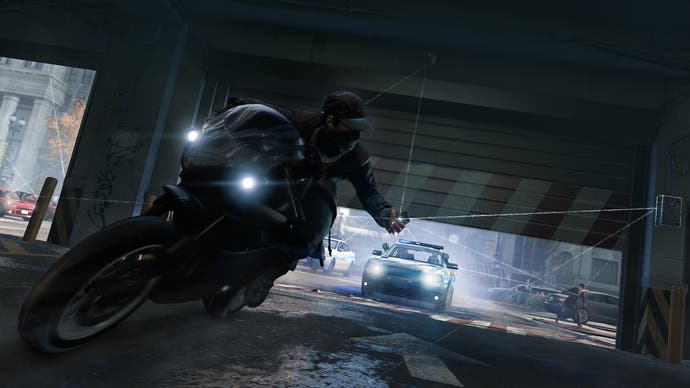
The game's main narrative arc remains under wraps, but there are hints that player interaction in side-missions will draw parallels with the way that Aiden Pearce personally becomes more obsessed and drawn into the actions of Chicago's population. "It's interesting to live the tragedy of Aiden through the main character," Belanger noted. It's a similar plot mechanic to the way that players steered the evolution of Far Cry 3's protagonist Jason Brody, turning him from a doe-eyed party boy into a cold-blooded tropical menace, validating the change through their own actions as they explored the island.
In Watch Dogs, players will expand the scope of their hacking and the scale of intervention across the city in a similar way. Hacking abilities are divided into two types - small-scale actions (scanning passers-by, or disabling a nearby car's security system), and the larger-scale actions that involve accessing the city-wide CTOS (Central Operating System). Access to the latter must be unlocked district-by-district by storming local datacentres, similar to Far Cry 3's outposts.
Armed with CTOS access, Pearce can use the city's surveillance technology to identify new side-missions and follow-up on potential crimes. But such side-content is not always crime-related - in one sequence we're able to gain access to a local wi-fi hub and peer into someone's home. Watching the occupant via his own webcam, we can scan him as if passing him on the street ("action figure collector", his bio reads, as we pan the camera round to find him indulging in agalmatophilia).
But as well as smart interactions with AI, Watch Dogs will also include opportunities for you to interact with other human players in your single-player game. "Say you're playing alone, free-roaming," Morin explained. "There's a bunch of activities you can activate. Sometimes - and you won't know when - the objective that you have is related to what someone else is doing at the same time. When that happens we merge your reality with the other person's, and you'll be able to see them."
"As a human if I tell you there's about to be a murder, you probably won't ignore it."
Danny Belanger, Watch Dogs lead game designer
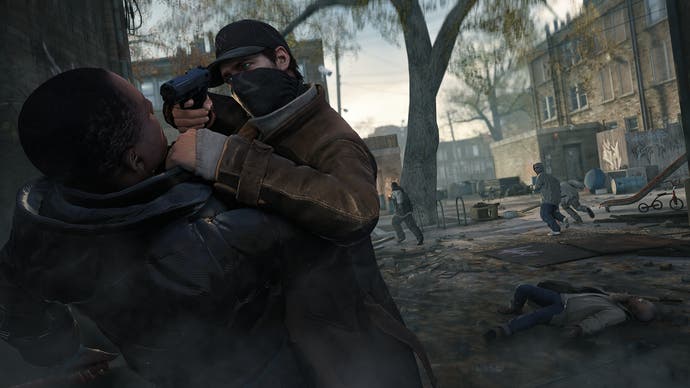
Morin gave the example of a mission where you had to spy on another hacker - but that person was a real player carrying out an objective within their own game who had unknowingly become part of your city. Sometimes you will be told if another player will be watching you during these objectives. Sometimes you won't.
"In playtests right now, in the scenarios where we don't tell players [they're interacting with another human-controlled character], most say 'oh this is really cool, it feels like there really are other hackers out there. Then we tell them it really was other players. And they're like 'what?!' We can have fun with your perceptions."
The feature is one of the more recent additions to the game and separate from the game's full-blown multiplayer mode (expect to hear more about that in the coming months). If it sounds like there's a lot to play around with, it's because there is. "We don't have the full playtest data through yet because it hasn't been played through all in one sitting," Belanger added, "but I'd expect it would be more than 80 hours to complete everything in the game."
Players can access a smartphone full of apps to activate contracts, drop glyphs for friends to find, or simply look up a tune playing on a nearby radio, Shazam-style. There's even a version of iTunes where you can buy new apps and games (with in-game money, Morin assures, definitely not micro-transactions). One AR shooter mini-game sees nearby NPCs attacked by purple Metroid-esque aliens, with high scores recorded on global leaderboards.
There's still much to find out about Watch Dogs, but it's already looking like an incredibly accomplished open world experience. The game's lengthy development time definitely shows - and yet there were still plenty of ideas left on the cutting room floor. "There's a list which we're reserving for the future at this point. We'll see what happens and then see what we can do," Belanger concluded. "We couldn't do everything we wanted, even in four years."
This article is based on a press trip to Ubisoft's offices in Paris. Ubisoft paid for travel and accommodation.
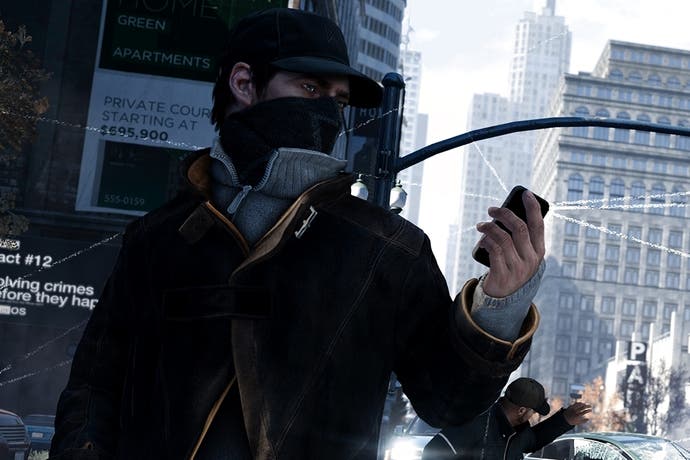

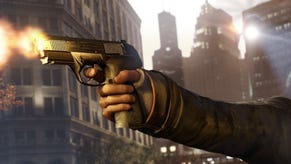
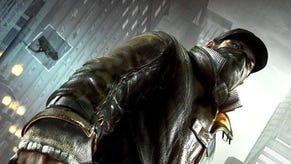
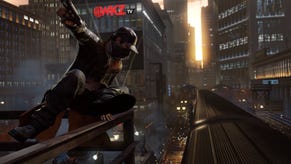
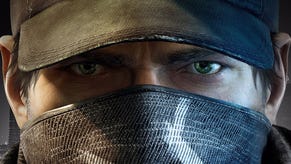


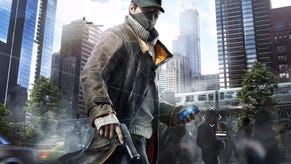
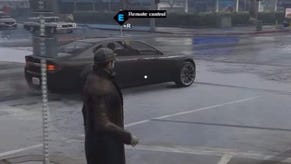



.png?width=291&height=164&fit=crop&quality=80&format=jpg&auto=webp)



